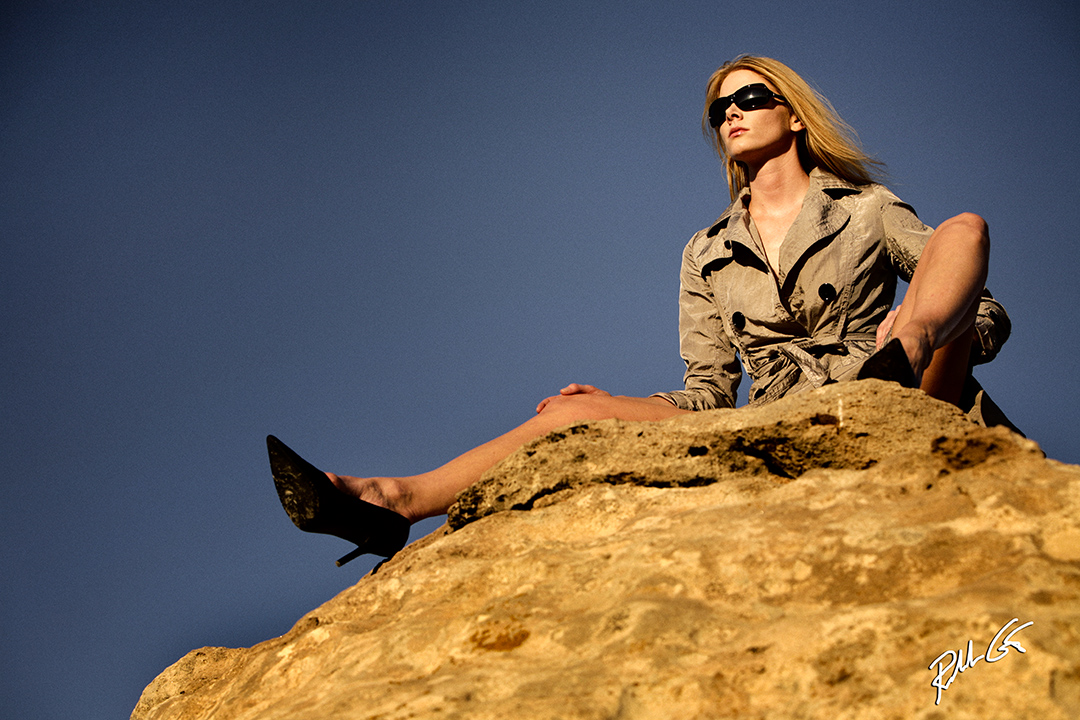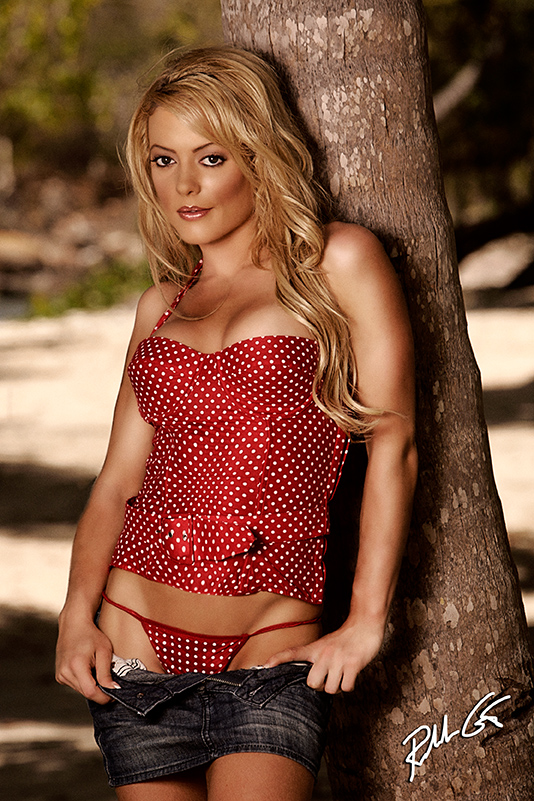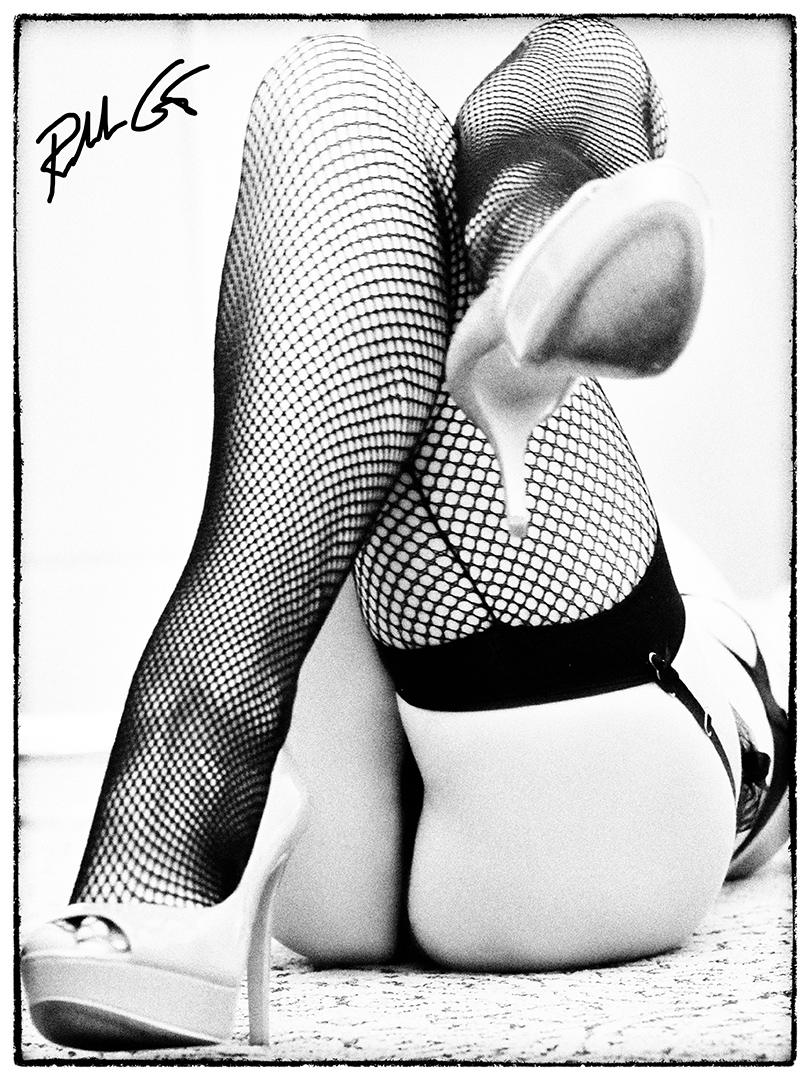As mentioned in The Photography Mentor article, muses are one of the two most important people that help a photographer develop their career, and like mentors, muses are not easy to find. However, a photographer stands a better chance at finding a muse before a mentor and that’s why in mentor article, I advised photographers to self-mentor, but unfortunately, this option is not available for a muse. A muse either exists in a photographer’s life, or doesn’t, as the muse is the subject of the final photograph. Muses come and go. Rarely are they a permanent part of a photographer.

A muse will not only inspire a photographer, but come up with her own ideas too as Jenni did here for me in the Moab.
A muse inspires the photographer and an ideal muse is someone that allows a “marriage of the minds” so the muse and the photographer can create something together artistically with passion. Passion itself is the driving force of knowing a person is your muse and in the perfect muse/photographer relationship, the passion is very strong on both sides and both parties get together to shoot as often as they can. The combination of the two passions is explosive when they collide, but when they fuse together, the harmony between the photographer and the muse is unmatchable.

It’s often hard for others to understand the relationship between a muse and her photographer. Here Tess posed for me in the Virgin Islands.
This passion is one of artistic nature, however, sometimes this passion is generated from a natural attraction to both parties. Sometimes this attraction is subtle, sometimes strong, though it’s a very gray area in that on one hand, the photographer is trying to maintain a plutonic, professional relationship, while on the other hand, natural attraction can lead to more from a humanistic sense. Some attractions are like parent/child, best friends and some even delve into a more intimate form.
As an analogy, a doctor will care about their spouse, child or best friend’s health in a more immediate sense out of the passion for their unique love while on the other hand a doctor can still passionately care for their patients in a plutonic sense. These harmonious and passionate relationships do exist though the doctor’s close one will probably get preferred care than a typical walk-in patient. In the end, the doctor will still provide the proper medical advice to all involved.
While photographers aren’t providing medical care, they do in a sense provide a form of photographic therapy, or a form of acknowledgement of their muse’s beauty that benefits their muse’s self-esteem. Self-assurance of the muse’s beauty from the photographer through the camera adds to their close relationship and the more passionately they will create photographs.
This time spent together strengthens their friendship and potential relationship form, but a photographer normally doesn’t look for building a personal relationship when looking for a muse. If it happens it should be natural, not forced, and if it doesn’t, don’t be discouraged, just focus on creating great photos together.
Not all muses fall into a more personal side of the photographer, but generally there is a tighter friendship between a photographer and their muse, in fact, a friendship tighter than that with a mentor. A photographer needs a muse in front of the camera, whereas a mentor isn’t required physically on the shoot to provide their potential.
The advantage of having a muse is that it often helps the photographer develop their photographic style while the muse gets more experience in front of the camera. Mentors might influence a photographer’s style, but generally mentors only provide executional and educational guidance of a protégé’s photography.
In my case, my mentor has always given me advice on my photography business, not on how I should shoot, though he’s complimented me on my shooting style and has pointed out I photograph women from a more photojournalistic point of view—that of always trying to tell a story with my images. My mentor claims it originates from my photojournalism background, whereas my muses in the past have no clue about my photojournalism background and tell me what they’d like for me to capture—their ideas, which I then add my style and technique to create what they want.

Sometimes a muse and her photographer can create abstract photos too.
In a sense, a photographer should try to deliver to their muse what they’d like to see in a photo that portrays their own thoughts and beauty, but capture what they want the feel the photo to convey at that given moment. A photography muse is someone that a photographer should sculpt into their photographs.
As an example, if I were to photograph the ideal scene without my muse, it’s just a scene, but when I add my muse as the main element of the photo, she brings that scene to life—the viewer will notice that life as the muse, specifically her pose, her look, her mood and her beauty bring to the photograph whereas the scene becomes a secondary element of the photograph.
It’s like driving down the highway, radio blaring, but you’re so into your life around you that you don’t even hear the music, but it’s there! This is how powerful a muse is to a photographer’s photographs and if you do hear the music, your muse becomes the lyrics to the music.
Interestingly enough, most musical lyrics are poetic in nature. Often, I think of photography as visual poetry and the tenth muse was a poet. The word “muse” itself comes from Ancient Greek, which started with three muses then went to nine. Eventually Plato named Sappho, an Ancient Greek and poet born on the island of Lesbos, as the tenth muse—the poetic muse, as she was known.
Sappho’s poetry centered on “passion and love” and often narrators of her poetry speak of her infatuations and love for various females. I like to look at my photography of women as passion based for the love I have of the female form and unfortunately, like infatuations, muses are rarely permanent in a photographer’s world, they come and they go as much as we hate to see that happen.
People move on, even our muses. Sometimes it’s a heartbreaker, ultimately, it’s usually better for both parties, though the key to knowing you had a great muse is that all memories, especially those captured in photographs, inspirational and personal, are cherished beyond after life—if you feel that way about your muse, it was ideal, not wasted inspiration. And when that happens, the search begins again for a photographer needs their muse for unparalleled inspiration.



